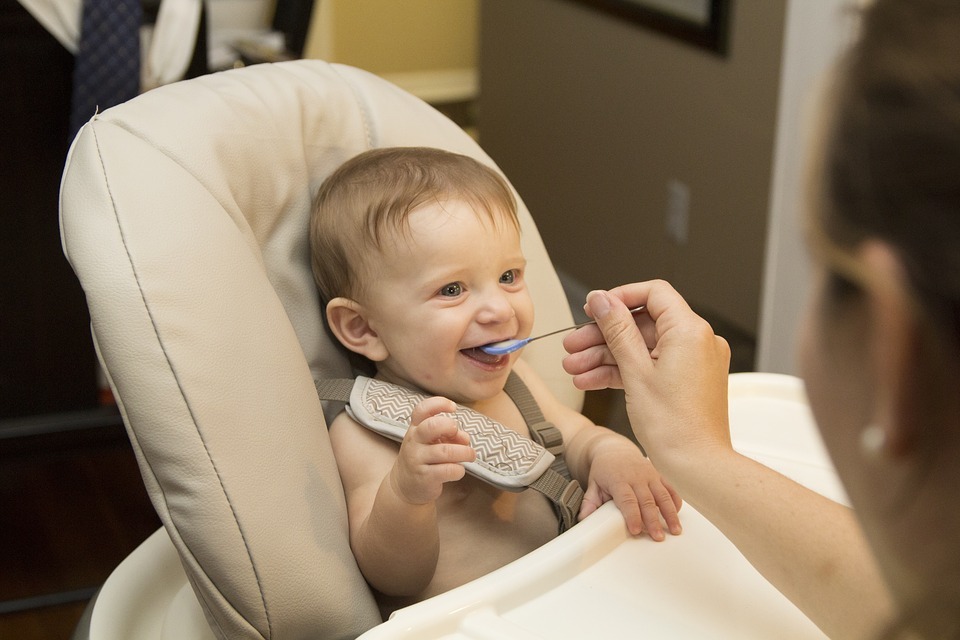An infant’s behavior is primarily molded by how he is treated and taken care of. The amount of sleep, diet, overstimulation or under-stimulation, training, environment, family, and the people around him are influential to his behavior. Therefore, it is important that all these factors contribute to a child’s healthier physical and mental growth.
Here are some of the basic tips for establishing a healthy routine for your infant.
MAKE A SLEEP SCHEDULE
This is possible by initially teaching your baby the difference between day and night. He may have these times reversed as your movement lulled him while he’s in the womb. During the day, wake your baby for feeding, and give him milk every three hours. Sing and talk to him while feeding so he will always recognize your voice. It will be also easier for you to have time to rest or do dome chores if you have established a sleeping routine for your baby.
CREATE A FEEDING PLAN
Depending on your baby’s weight, you may feed your baby every 4 hours throughout the night. During those feedings, encourage a quick return to sleep by switching off the lights and being quiet.
As a baby grows, it might take a long time before he feels hungry and asks for feeding. Note that fussiness doesn’t necessarily mean he’s hungry. Whenever your baby is acting like he’s hungry during the day, but it’s not the time for a meal, try to check his diaper, or maybe he feels hot, or he is sleepy.
You can consult his pediatrician and ask how often and how much to feed. Plan out nursing or bottle sessions according to his wake-up times and the hours between them. Remember that you must substitute it with an increase in the volume of the daytime meals when you begin lessening night feedings.
ESTABLISH TIMES FOR THE CHANGING BATH AND CHANGING CLOTHES
Newborn babies only need 2-3 times sponge bath in a week, but once the umbilical area is dry, which means it’s healed, you may try bathing your baby directly in the water. It should be a gentle and quick first bath. Try doing this twice a week for about two (2) weeks; then, you can bathe your baby directly in the water every day. You will know if the baby is ready whenever he shows that he enjoys taking a bath.
Changing clothes for your infant must also help him identify that it’s already morning and nighttime. When he wakes up, you can wipe him a little and then change his diaper and clothes and do this during the night before he sleeps.
During the day, keep your house bright and noisy but dim and quiet at night to signal sleeping time. You may sing the same lullaby every time you put your baby to sleep. These changes will let him learn that night is for sleeping and daytime’s for playtime. Consistency is key to a successful routine, may it be in eating or sleeping.
UNDERSTANDING YOUR BABY’S CUES
There’s no perfect routine that you can always impose on every infant as everyone is unique and has specific needs. Your baby also communicates despite the absence of words; try to decipher his non-verbal cues if it says he is sleepy, hungry, wanted to change his diaper, ready to play, and so on.
You need to be patient in understanding your little one’s way of communication. Try making a note of his cues to help you create a routine that works for him.
EXPECT CHANGES DURING GROWTH SPURTS AND MILESTONES
It’s inevitable! Your baby will grow and accomplish much during his first year. He will be heavier, taller, bigger, and started to crawl, sit, or even walk.
His growth, both physical and cognitive, can be earlier or delayed than the others. However, do not compare, and just enjoy every milestone that he ticks off. As your infant grows, he may spend longer sleeping time and might sleep late at night than usual.
Some parents might feel disheartened as the routine seem not to work well anymore. It’s a normal feeling, but don’t let it discourage you from continuing a healthy routine for your infant. You need to make adjustments to the routine to accommodate his new needs and skills.
ADJUST YOUR BABY’S ROUTINE TO SUIT HIS AGE
As your baby grows older, he’ll need fewer daytime naps and more playtime and stimulation. You can introduce solid foods to him at six (6) months. It will be an added time for you to spend in doing food preps and in cleaning.
DON’T EXPECT PERFECTION!
You cannot impose or expect a hundred percent faithfulness of your infant to the routines that you train for him, especially that he is growing each day. It’s better to expect changes from day to day to lessen your stress.
Things will be in an on-off situation sometimes. Your baby might skip a nap, have an extra feed or wake up early.
Life will get in the way too. Holidays, family gatherings, friends’ visitation affect your infant’s life, but these must not cause too much disruption to your baby’s routine.



